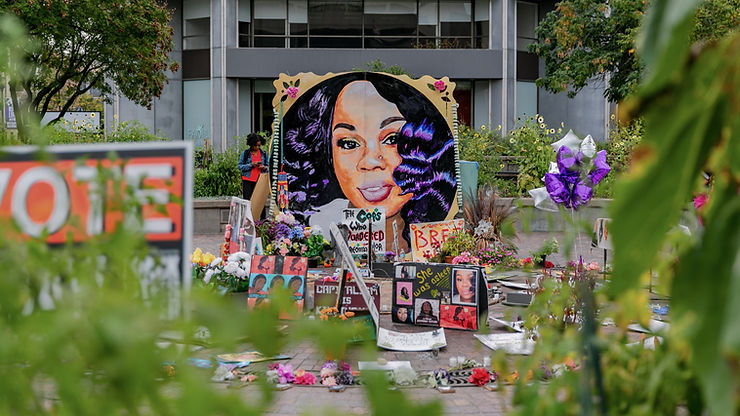By: Richard Huang
On March 13th, 2020, four police officers broke into Breonna
Taylor’s apartment in Louisville, KY., and shot her to death with a
warrant containing misinformation.
The day before the incident, detective Joshua Jaynes requested a
warrant from Judge Mary Shaw in order to search for stashed drugs
in Ms. Taylor’s house. Mr. Jaynes said Ms. Taylor’s ex-boyfriend
had been shipping packages to her apartment, and he claimed that
his proof was a postal inspector who confirmed the shipments. Mr.
Jaynes added that he needs a no-knock warrant so they could
apprehend the drug dealers more effectively. Judge Shaw then
signed off on the warrant.
The night when the tragedy happened, officers barged into Ms.
Taylor’s apartment and shot her at least five times and was found
dead before emergency personnel came.
“Breonna was a woman who was figuring everything out in her life,
who had turned a corner,” said Sam Aguiar, a lawyer representing
Ms. Taylor’s family. “Breonna was starting to live her best life.”
But a few days ago, federal prosecutors said detective Jaynes had
lied to the judge about the warrant. There is no clear evidence shown
that Ms. Taylor’s ex-boyfriend had been receiving drug packages,
and Mr. Jaynes had never confirmed the evidence with any postal
inspectors, according to the prosecutors.
After the killing, much of the public had turned their attention to the
charges that the two officers, who shot Ms. Taylor, need to face.
However, the Justice Department was most concerned with the
falsified warrant, emphasizing the problems of issuing warrants only
based on officers’ accounts, which could be exaggerated and
fabricated.
“It happens far more often than people think,” said Joseph C.
Patituce, a defense lawyer and former prosecutor in Ohio. “We are
talking about a document that allows police to come into the homes
of people, oftentimes minorities, at all times of night and day.”
Similar incidents had occurred in multiple cases. In Houston,
Atlanta, and Baltimore, officers had reported that they had found
evidence of drugs and requested a warrant.
“It’s tragic when you see police falsify information to obtain a
search warrant, and it is also dumb,” said Ed Davis, the former
Boston police commissioner. “Every one of those search warrants
can turn into a disaster.”
Oftentimes judges issue their warrants only based on the officers’
affidavit, which, revealed by previous cases, can be a misstatement.
“The most extreme example is when they are just dishonest, even
though they are under oath,” said Thomas Clay, a lawyer connected
to the Breonna Taylor case.
Sources:
tyln-breonnataylor&variant=show®ion=BELOW_MAIN_CONTENT&block
=storyline_flex_guide_recirc











